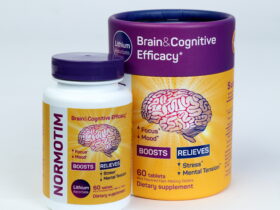There are some impressive benefits associated with physical activity. A regular exercise routine improves your health, increases energy, promotes restful sleep, boosts confidence, relieves stress, and sharpens your mind. But is exercise just a feel-good benefit, or is it also good for your brain?
Studies conducted over the last few decades have explored the effects of exercise on cognition. One study found that moderate exercise is associated with an increase in creative thinking abilities. Other studies have found that exercise is associated with improvements in executive functioning, which is a collection of abilities that help us plan and make decisions, regulate our emotions, and initiate and follow through on tasks.
Exercise is also associated with improvements in mood and emotional control. A regular exercise routine has been shown to boost self-confidence and improve positive feelings. Exercise is also associated with reduced stress, and that in turn increases problem-solving abilities.
Exercise, then, appears to be good for many parts of your brain. It is also associated with long-term improvements in cognition, which may be the primary key to its cognitive benefits.
You’ve probably heard the phrase, “Exercise gives you endorphins.” But what does that really mean? Endorphins are chemicals produced by your body that act as natural painkillers. They naturally boost your mood, decrease pain, and help create a euphoric feeling. Exercise releases endorphins and regularly exercising increases your body’s production of these feel-good chemicals. Regular exercise isn’t just a feel-good thing. Exercise can actually make you smarter, stronger, and more able to handle stress.
The benefits of exercise are numerous, but if you’re not already exercising, you might be hesitant to make time for it. After all, exercise is hard and can seem overwhelming. But once you get started, you’ll find that exercise can be enjoyable and extremely beneficial. Exercise should be a priority for professionals. Being physically active improves concentration and focus, boosts energy, improves mood, increases emotional control, and promotes quality sleep.















Leave a Reply